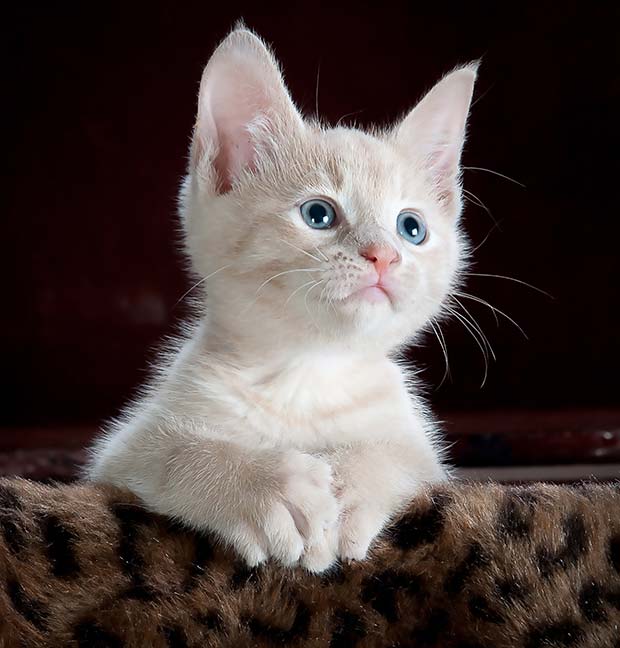A look at the figures clearly shows that the label of Britain being a nation of pet lovers, a bond that is growing stronger, is well deserved but what should retailers and producers do to exploit the opportunities? In a few words, follow the trends, which applies just as much to the nation’s food habits in general.
 At £2.8bn, and growing at 2-3% annually over the last few years, the overall UK pet care market “is incredibly important for the UK retailers,” points out Helen Warren-Piper, general manager at Mars Petcare UK. Pet owners on average spend over £733 a year more than non-pet care owners, and nearly half the country’s population own a pet. And as with their own concerns to improve their diets such concern has spilt over to similar concerns for their pets. This is one of the key trend lessons that food producers and retailers should take on-board to exploit the business opportunities.
At £2.8bn, and growing at 2-3% annually over the last few years, the overall UK pet care market “is incredibly important for the UK retailers,” points out Helen Warren-Piper, general manager at Mars Petcare UK. Pet owners on average spend over £733 a year more than non-pet care owners, and nearly half the country’s population own a pet. And as with their own concerns to improve their diets such concern has spilt over to similar concerns for their pets. This is one of the key trend lessons that food producers and retailers should take on-board to exploit the business opportunities.
Humanisation rules
Pet owners are becoming more conscious of what they are feeding their pets, wanting to ensure that they have the best possible care and nutrition. Given that 71% of pet food buyers believe that their pets’ diet has a direct impact on their pets’ emotional wellbeing, the trends of human and animal health and wellness continue to blend. This has been seen in the growth of plant-based and specialist meal offerings, but more predominantly in the wider humanisation of pet food products, including scientific and natural offerings and opportunities. There is also another interesting trend.
Mars Petcare believes the pet population is changing. It sees smaller dogs, unique breeds and older pets making up the pet population of the future. This, they say, is partly driven by urbanisation of the population, with over 60% living in cities by 2030.
Pet owners are also increasingly seeking to manage proactively their pets’ health and wellbeing as well as wanting to provide the best experiences for their pets and not ‘just a meal’. But the industry is also acutely aware that they must acknowledge that owners look for affordability and convenience when shopping for nutrition which is tailored to meet their pets’ needs and their budget. It follows from this that a static pet population and high calorie conversion in the UK, the future category growth will come from premiumisation. This trend is driven by pet owners willing to raise spending in the category on super premium products, natural scientific offerings and on treating their pets.
Over 60% of pet owners say that quality of their pet food is as important as their own, so it is little wonder that pet owners are increasingly interested in what they feed their pets. There are two clear routes for owners who are looking proactively to manage their pets’ health and wellbeing –natural and scientific offerings. Natural pet foods tap into this trend and appeal to pet owners who believe that treating with a natural diet is best for them and want to feed pets in line with this food philosophy. Science-inspired brands appeal to owners who are looking to manage their pets’ health through seeking scientific nutrition to meet life-style and specific health requirement needs.
Grow naturally
Natural product propositions are projected to drive two thirds of total UK growth to 2020, making it the fastest growing segment in the category. Just as health trends have swept through the consumer goods space, it is estimated that the value of natural pet care brands will be worth over £314m by 2022 (11% growth) as shoppers are increasingly willing to pay a premium for natural products. Similarly, growth will also come from brands that offer owners a diet that provides customised nutrition delivered through science that is projected to be worth £84m by 2022.
Jenny Kennedy, head of category and insights, at Pets Choice, believes packaging is a hot topic within the pet care industry just as much as in the wider community, with people moving away from single use plastic wherever possible. “Plastic will always have a role in the manufacturing process but as sustainability continues to creep higher up on the consumer agenda, it’s imperative for us to use alternative materials where possible, including sustainable ingredients,” she says. “There are switches that must be made at the earliest opportunity to show customers that we are acting on their concerns.”
The growth in natural pet food and competitiveness of private label have helped grow the total pet food category by just under 1% in the last year. In a sense, the trend with premiumisation in total pet food is all about Natural. Key to this is shoppers taking more thought and care in what they feed their pets and seeking out natural ingredients. “We are now seeing the natural food market growing at a phenomenal 24% year-on-year and bringing in £25m in additional sales versus last year, with Dog making up 75% of this and growing 26% year-on-year, and Natural Cat seeing a similar success story with sales of over £29m and growing at 14%,” says Jenny.
 Don’t overlook treats
Don’t overlook treats
The Treats segment is a hugely important segment of the pet care market, with a 23% share and growing 5% annually. In choosing these treats, cat owners lean towards products that have added health benefits such as healthier teeth and bones. Dog owners are moving to more long-lasting and more natural treats. Within dog treats private label is seeing growth ahead of the market – as they are supported with increased ranges and support on fixtures. Of the two, cat treats are seeing stronger growth than dog treats, at 6%.
With as much as 40% of all pet dogs scared by fireworks, which are getting more prevalent throughout the year, those looking for help could consider CPD, suggests Simon Manthorpe, CEO of EOS Scientific. CPD is one of over 100 cannabinoids found in the cannabis plant, and is known to help not only with epilepsy but also anxiety, inflammation, pain relief, and sleeping issues. It is regarded as a food supplement that helps bring balance to our bodies and minds by complementing or topping up the endocannabinoid which most of us are unable to create enough and therefore causes imbalance. As we look towards more holistic remedies rather than prescribed medications, CPD’s popularity has boomed in the health and well-being markets. By the end of 2021 its value is expected to triple to £1.2bn worldwide.




Comments are closed.